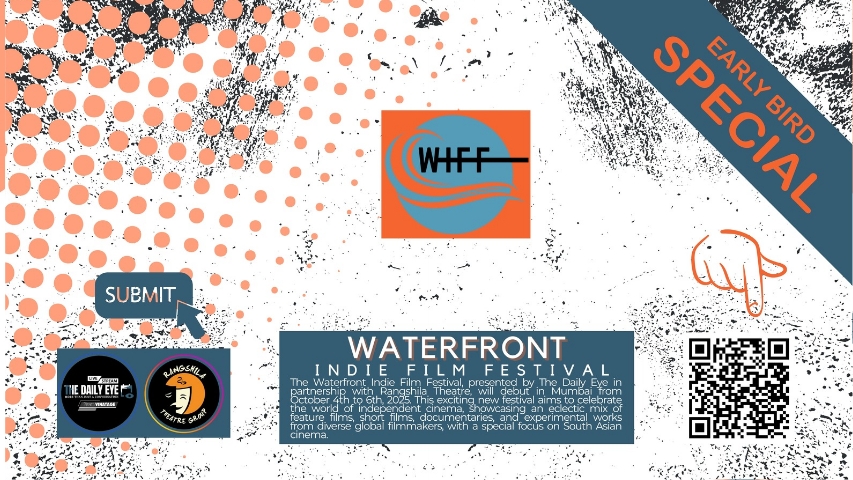
POLITICS: PEACE DEMANDS MORE THAN PROGRESS
by Vinta Nanda April 24 2025, 12:00 am Estimated Reading Time: 4 mins, 49 secsDespite global advancement and innovation, persistent political power struggles and inequality continue to fuel violence and fear. The Pahalgam tragedy exposes the urgent need for human-first governance and unity, writes Vinta Nanda.
The April 22 terrorist attack in Pahalgam, Kashmir—killing 26 innocent tourists—highlights the deep-rooted political and social strife still plaguing our modern, technologically advanced world. As global economies flourish and cultures intermingle, recurring violence rooted in inequality, power politics, and identity conflicts continues to devastate lives. This article explores the paradox of progress and persistent unrest, urging a collective shift towards inclusive development, empathetic leadership, and cultural coexistence. Let’s find out how true peace depends not only on innovation, but also on equality, justice, and the recognition of shared humanity across borders.
In a world where technological advancements promise unimaginable ease, global connectivity, and a fairytale future for generations to come, the haunting reality of violence and strife persists like a shadow beneath the bright lights of progress. The terrorist attack on April 22nd in Pahalgam, Kashmir, which claimed the lives of at least 26 innocent tourists and injured several others, is a tragic reminder that despite our leaps forward, humanity remains entangled in the chains of political ambition, inequality, and unresolved historical wounds. This piece seeks to explore why such conflict endures in an age of abundance and what it will take to fundamentally change the status quo.
A World of Promises and Paradoxes
We live in an era of innovation. Science has conquered diseases once thought incurable. Artificial intelligence is transforming industries. The world is more connected than ever before. These advancements create the illusion that peace, prosperity, and equality are inevitable. And yet, events like the Pahalgam massacre starkly reveal that beneath the surface, human lives remain cheap in the eyes of those playing the power game.
Tourists—ordinary men, women, and children—were gunned down in a serene meadow known for its beauty, not its battles. These victims had no political motive, no strategic significance. They were simply caught in a crossfire forged by historical enmity, geopolitical conflict, and a system that still values dominance over dialogue. The assailants, described as part of a militant group called “Kashmir Resistance,” justified the attack by claiming opposition to demographic shifts driven by state policies. But such justifications ignore a deeper, more tragic truth: those who carried out this violence were likely themselves victims of a different kind—of poverty, alienation, and indoctrination.
The Root of the Rot: Politics of Power and Division
At the heart of such violence lies the failure of politics—specifically, politics that values power more than people. Kashmir has long been a flashpoint between India and Pakistan, each claiming the region while its inhabitants suffer under the weight of that dispute. For decades, the people of Kashmir have lived with militarization, suspicion, and instability. Into this vacuum of peace, extremist ideologies have crept in, exploiting disillusionment and a lack of opportunity to turn vulnerable individuals into instruments of terror.
It is also a political failure that the wealth and potential of our planet remain hoarded by a small fraction of its population. The world has enough resources for every human being to live with dignity. But the unequal distribution of wealth and opportunity not only breeds resentment but also creates fertile ground for extremism. When people have nothing to live for, they are more easily manipulated into dying—and killing—for a cause.
Events like the Pahalgam attack also foster fear and hatred. These emotions do not just stay confined to conflict zones—they ripple outward, deepening communal divides, igniting xenophobia, and fuelling nationalism. As societies retreat into protective silos of identity, the dream of a pluralistic world begins to crumble.
Perhaps the most heart-wrenching aspect of this strife is the toll it takes on ordinary people. They are not the decision-makers, not the ones drawing borders or signing treaties. Yet they are the ones who bleed. In Kashmir, Israeli settlements in Palestine, war zones in Sudan, and refugee camps across Europe and Asia, it is the common person who suffers the consequences of decisions made far from their control.
And yet, these people also hold the greatest potential for peace. It is through their shared pain and hope that the seeds of a different future can be sown.
The Path Forward: Equality, Empathy, and Accountability
If we are to escape this cycle of violence and reimagine a more harmonious world, things must change: Leaders and governments must prioritize people over politics. This means engaging in genuine dialogue, investing in conflict resolution, and rethinking policies that exacerbate tensions. Education, healthcare, and meaningful employment should be accessible to all. Giving people something to live for is the best way to ensure they don’t become pawns in a war. We must learn not only to tolerate, but to celebrate difference. Cultural identity need not be a source of division; it can be a source of strength.
A Wholistic Society: Dream or Destiny?
It may seem utopian to envision a world free from fear, where cultures coalesce instead of clash. But the alternative—a world fragmented by violence and mistrust—is unacceptable. Strife does not stem from difference itself but from our failure to manage it with wisdom and compassion.
The attack in Pahalgam is a tragedy that should never have happened. But let it not be in vain. Let it be a wake-up call—not only to governments but to all of us—to build a world where no life is disposable, no identity is a threat, and no future is built on fear.
Peace will not come easily. But it is possible—if we choose to make it so.






-173X130.jpg)
-173X130.jpg)
-173X130.jpg)
-173X130.jpg)
-173X130.jpg)
-173X130.jpg)

-173X130.jpg)